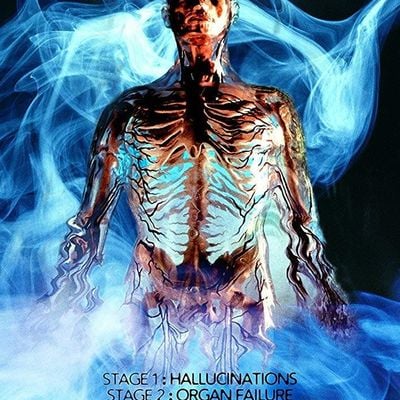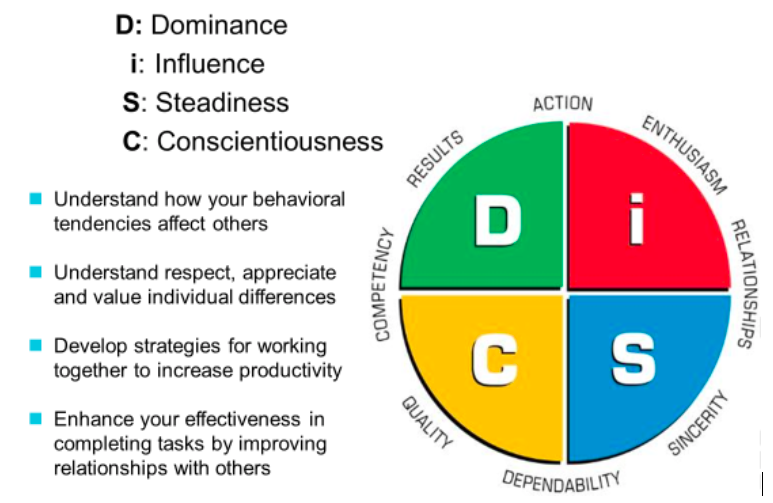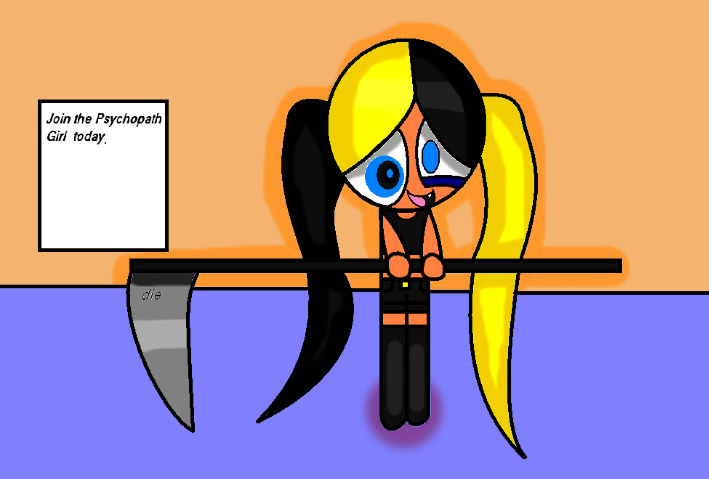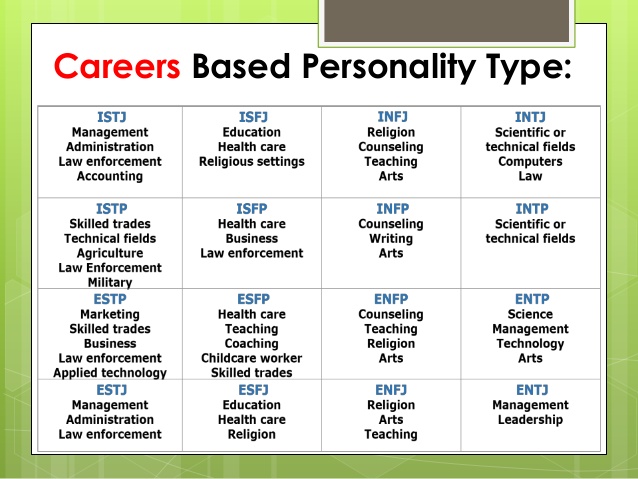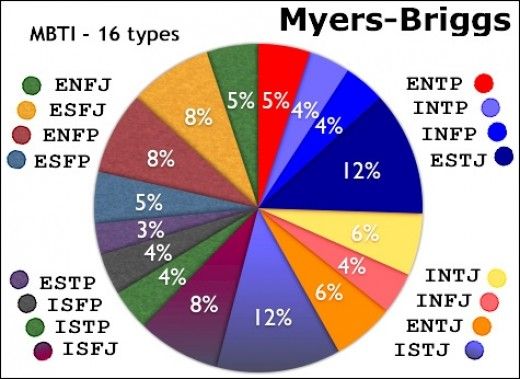Dealing with hallucinations
Managing hallucinations and delusions: tips for family, friends and carers
- Your magazine
-
Tips
A hallucination is when someone sees, hears, feels, smells or even tastes something that isn't actually real.
Delusions are strongly held thoughts or beliefs that aren’t based on evidence. This can be one of the most difficult experiences to come to terms with, especially if someone has delusions about their carer or someone close to them.
Here we share tips to help you support your loved one – and yourself – if someone you know is experiencing these symptoms.
Everyday support
1
It’s important to get medical advice. Don’t rely on someone telling you they are experiencing hallucinations or delusions – they may not realise what they are, or they may not want to tell you. If they seem to be behaving or reacting in a strange way, gently ask them what the matter is.
If you are unsure, explain that you are going to contact their GP, specialist or Parkinson’s nurse.
If the person with Parkinson's understands there is something wrong, make sure you are clear who you are going to contact and why. This will avoid any extra confusion.
In general, hallucinations and delusions can be treated. They should improve with the right treatment and medication but this doesn't always work. In this case it’s important to get help dealing with any distress from the person's healthcare team.
Even if the hallucinations are not upsetting or disturbing, it is still important to tell a member of their medical team if they are a new problem. You should also speak to a member of the medical team if the hallucinations or delusions seem to be getting worse. Don’t wait for the next appointment.
2
If hallucinations or delusions are very severe, telling the person experiencing them that they aren’t real may not help. It could lead to conflict and is unlikely to be effective.
You should instead acknowledge their experience and try distracting them from it. Do not engage or join in with their hallucination.
3
Anxiety may make hallucinations and delusions worse. Try to find ways to help the person relax such as talking to them calmly or taking them somewhere quiet to unwind.
4
Some delusions can lead to safety issues, such as someone leaving the house in the middle of the night. In these cases, get advice from their specialist or Parkinson's nurse.
5
Sometimes, your loved one may think you're part of the hallucination or delusion. Consider having a pre-agreed ‘code’ to use to help reorientate and bring them back to the present. This could be an object like your wedding ring or a necklace.
Talking to others
Managing hallucinations or delusions and giving support can be tiring. So get support for yourself from those around you and remember to recharge your batteries.
1
Sometimes it helps to speak to someone about how another person’s symptoms are affecting you.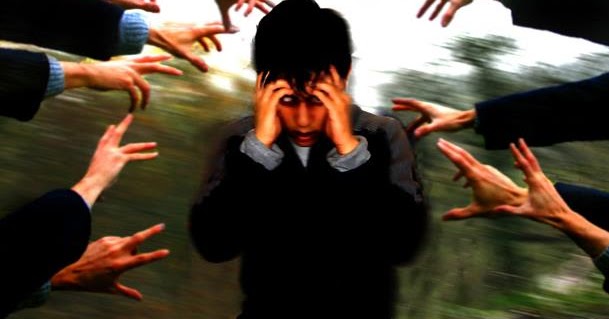 This could be your own GP or a counsellor. You can also get support from other local services to help you manage at home.
This could be your own GP or a counsellor. You can also get support from other local services to help you manage at home.
2
Talk to other people affected by Parkinson's who may have had a similar experience and can provide tips and advice. You can speak to others at your local Parkinson's UK group or on our online forum.
Counselling
1
Counselling can help you and the person experiencing hallucinations and delusions. Many GP surgeries have counsellors attached to their practice or can give information about other local services.
2
There are also counselling organisations that can give information and details of private counsellors. The mental health charity Mind has a range of guides, including Making Sense of Talking Treatments. This covers what counselling is, how it can help, what it involves, the types available and how to find a counsellor.
Find out more
- Read more about hallucinations and delusions
- Seeing things: Michelle's experience of hallucinations
- Experiencing hallucinations and delusions? Tips to help you manage.
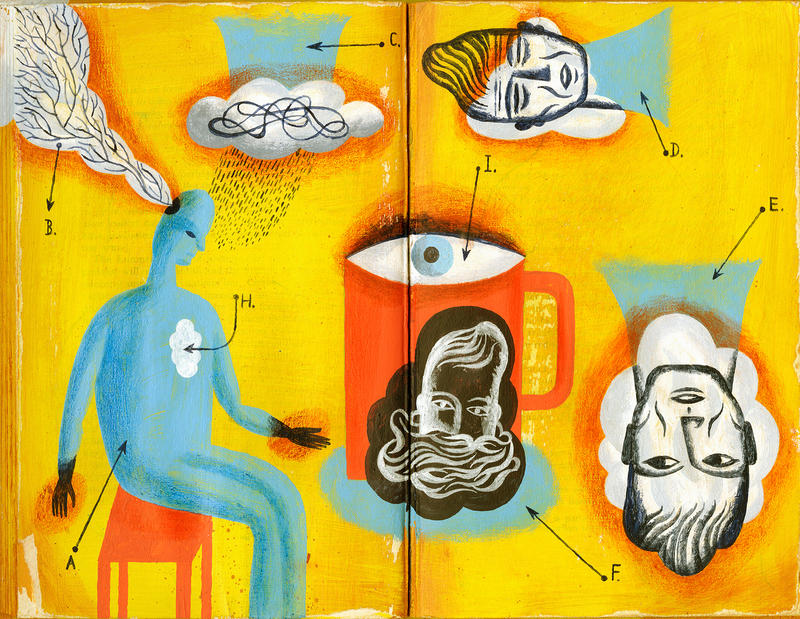
Back to top
Related content
You might like
Updated
Spotlight on
Managing the cost of living crisis
Read more about 'Managing the cost of living crisis '
Stories
"I am very grateful" - Tony's story
Read more about '"I am very grateful" - Tony's story '
From the experts
Bone health and Parkinson's
Read more about 'Bone health and Parkinson's '
Hallucinations and hearing voices - NHS
Hallucinations are where you hear, see, smell, taste or feel things that appear to be real but only exist in your mind.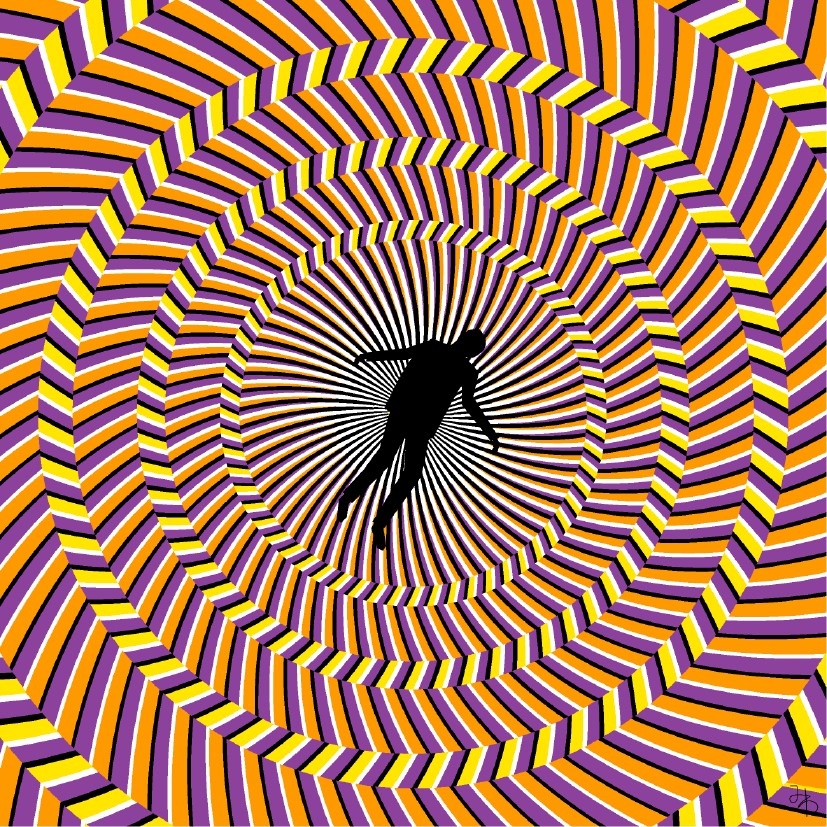 Get medical help if you or someone else have hallucinations.
Get medical help if you or someone else have hallucinations.
Types of hallucinations
You may have hallucinations if you:
- hear sounds or voices that nobody else hears
- see things that are not there like objects, shapes, people or lights
- feel touch or movement in your body that is not real like bugs are crawling on your skin or your internal organs are moving around.
- smell things that do not exist
- taste things that only you feel are not pleasant or is strange
- think that your body is moving like flying or floating when it is not
Causes of hallucinations
Hallucinations can be caused by many different health conditions that affect the senses.
Common causes of hallucinations include:
- mental health conditions like schizophrenia or a bipolar disorder
- drugs and alcohol
- Alzheimer's disease or Parkinson's disease
- a change or loss of vision, such as Charles Bonnet syndrome
- anxiety, depression or bereavement
- side effect from medicines
- after surgery and anaesthesia
Sometimes hallucinations can be temporary. They can happen if you have migraines, a high temperature or just as you wake up or fall asleep.
They can also be caused by an infection, brain tumour or confusion (delirium), especially in older people.
Urgent advice: Ask for an urgent GP appointment or get help from NHS 111 if:
Immediate action required: Call 999 or go to A&E now if:
You or someone else:
- want to harm yourself or someone else
- hear voices telling you to harm yourself or someone else
- have a seizure (fit)
- suddenly become confused
- are not making sense when you speak
Treatment for hallucinations
Treatment for hallucinations will depend on what's causing it.
For example, if you have a mental health condition like schizophrenia, you may be given therapy or medicine to help reduce your hallucinations.
A GP may recommend lifestyle changes like drinking less alcohol, not taking drugs and getting more sleep to reduce your hallucinations.
Page last reviewed: 15 February 2022
Next review due: 15 February 2025
Causes and symptoms of hallucinations. What to do and how to fight?
Dietary supplements cheap
In the process of hallucinations, a person sees or hears something that does not exist in reality. The phenomenon occurs for various reasons, it is important to understand in a timely manner why such a state occurs, how it develops and what to do about it.
What are hallucinations, what are they?
Hallucinations are images that appear in the human mind. Most often, these are symptoms of a psychological illness. A person may also experience auditory hallucinations. In healthy people, hallucinations can also occur, but as a result of severe overwork of the body. If this condition is not uncommon for you, then you should think about treatment.
Most often, these are symptoms of a psychological illness. A person may also experience auditory hallucinations. In healthy people, hallucinations can also occur, but as a result of severe overwork of the body. If this condition is not uncommon for you, then you should think about treatment.
Free consultation now!
Online consultation with a specialist on your issue!
License number: LO-77-01-019036
Symptoms and signs of hallucinations
In simple terms, hallucinations occur as a result of a failure of any system responsible for the perception of the surrounding world. So some visual objects may seem to the patient or auditory perception may be distorted. Hallucinations are diagnosed by a psychiatrist.
Most often, at the initial stage, such hallucinations occur with closed eyes, when a person goes to sleep. This is preceded by frequent abuse of alcohol or drugs.
Hallucinations are true and false.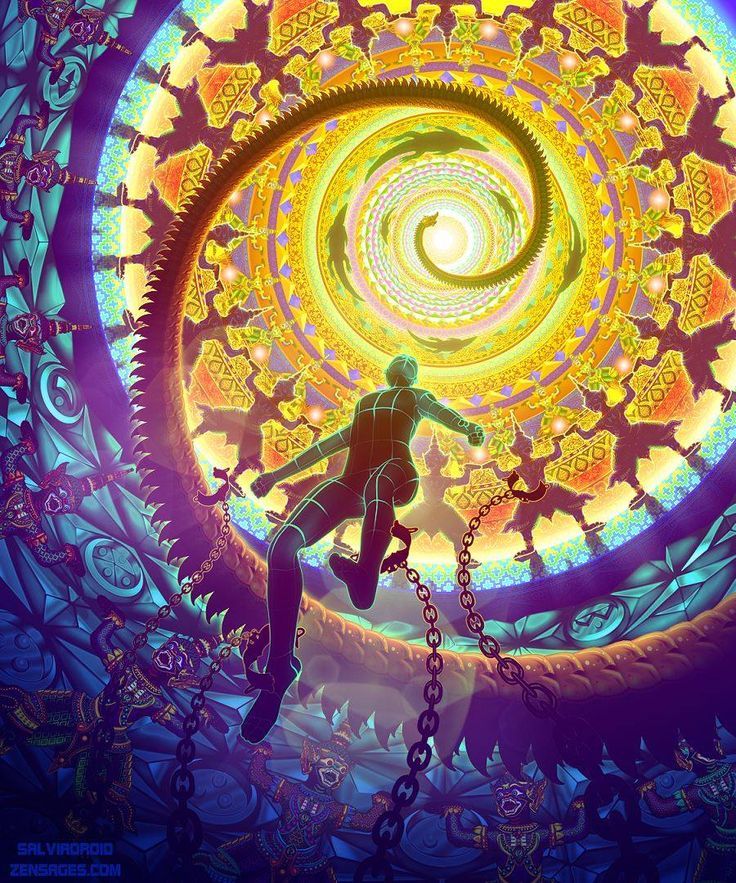 The difference is this: true hallucinations - a person is confident in their reality, and does not question the fact that they do not exist in reality, and this is the result of a failure in his perceptual system. The patient sees such phenomena in the world around him.
The difference is this: true hallucinations - a person is confident in their reality, and does not question the fact that they do not exist in reality, and this is the result of a failure in his perceptual system. The patient sees such phenomena in the world around him.
False hallucinations occur in the person's head. For example, the patient hears voices in his head, he may believe that someone communicates with him mentally and influences his condition and decisions. Such conditions are associated with schizophrenia.
Types of hallucinations
To understand what to work with, hallucinations must be classified into certain types.
It must also be said that all hallucinations are divided into 2 types.
- True hallucinations - a person perceives false objects in the surrounding world and believes that they are part of reality.
- False - the distortion of reality occurs in the patient's head. imply
Hallucinations can be simple or complex.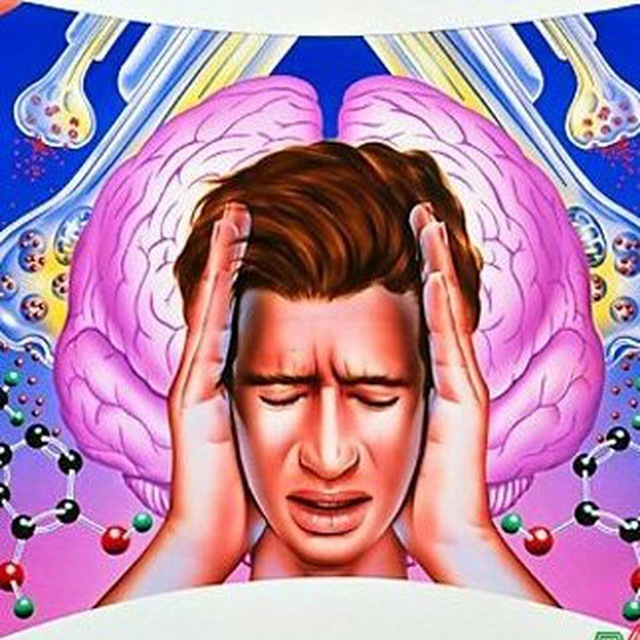 Those. the failure may affect one or more organs of perception. And the more organs are subject to hallucinations, the more difficult the treatment is.
Those. the failure may affect one or more organs of perception. And the more organs are subject to hallucinations, the more difficult the treatment is.
Visual hallucinations
As a result, false images of objects, people, living beings, various objects appear in the human mind, but the patient perceives them as part of reality. In addition, a person sees a certain sequence of actions (as if some plots of a film) and can take an active part in them. This happens after an overdose of alcohol, drugs, or incorrectly taking serious medications. Such visions haunt a person.
Auditory hallucinations
A person hears voices, various sounds, hears his name or is told to do something, but only he hears this in reality it does not exist. Auditory hallucinations are detected in acute mental illness, such as schizophrenia.
Can sometimes be caused by an overdose of various substances, similar to visual.
Olfactory hallucinations
Less common.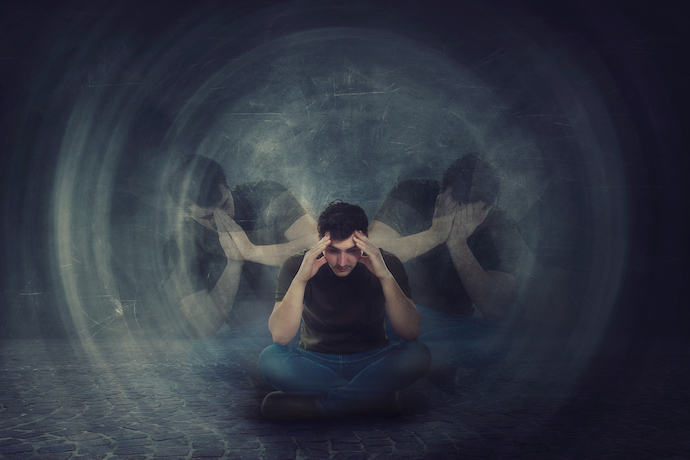 A person smells non-existent odors. Occur after brain injury or schizophrenia. They can also appear after the passage of an infectious disease.
A person smells non-existent odors. Occur after brain injury or schizophrenia. They can also appear after the passage of an infectious disease.
Taste hallucinations
The patient has sharp and unpleasant sensations in the oral region, as a result of which there is a refusal of any food.
Tactile hallucinations
A person feels that there is an object (creature) on the body that does not exist, there may also be a sensation of the object moving around the body. In this case, there is a feeling of sharp heat or cold. The patient has unpleasant tactile sensations on the body. Severe pain or itching.
Hypnagogic hallucinations
Appear when a person falls asleep (most often healthy). Awareness arises in the form of masks, plant monsters, and any other physical objects. Such hallucinations are a harbinger of an imminent mental disorder and a reason to consult a specialist, or call a psychiatrist at home.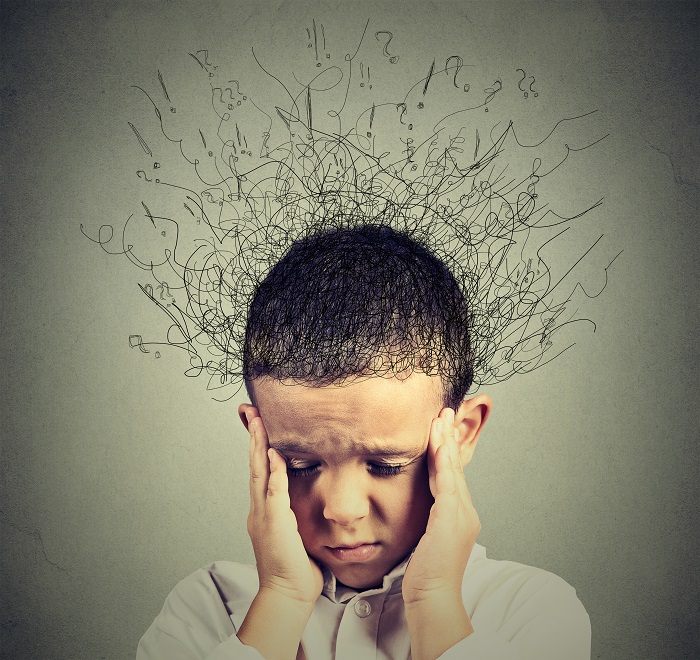
Write to WhatsApp
COST OF TREATMENT
Causes hallucinations
Let's see why hallucinations can occur. Specialists of the medical center "Korsakov" identify the following reasons:
Excessive and systematic alcohol consumption.
Drug use.
Use and overdose of psychostimulants.
Schizophrenia.
Brain damage.
Influence of psychosis.
Syphilis.
Age. As a result of the aging of the body, changes occur that entail a failure of the organs of perception.
Frequent stress, pessimism, anxiety.
Hallucinogenic mushrooms.
Neoplasms of the brain.
Infection of the body.
Epileptic syndrome.
Heart disease.
Atherosclerosis.
Prolonged insomnia.
Causes of hallucinations in the elderly
In the elderly, the development of hallucinations may be due to age. This is the result of age-related changes in the organs of perception.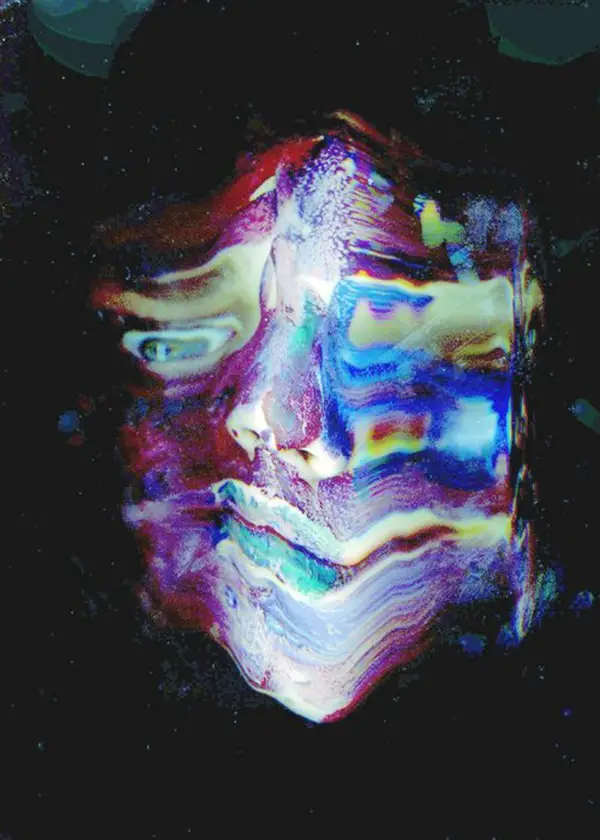 Such people are characterized not only by auditory hallucinations, but also by visual and gustatory hallucinations. Elderly people with this disease begin to complain about strange smells in the room, an unpleasant taste in the mouth, etc.
Such people are characterized not only by auditory hallucinations, but also by visual and gustatory hallucinations. Elderly people with this disease begin to complain about strange smells in the room, an unpleasant taste in the mouth, etc.
What to do in case of hallucinations?
Today there are a huge number of methods for the treatment of hallucinations, and different methods are aimed at eliminating different types of hallucinations. It must be said that therapy is often aimed at curing the cause of hallucinations. But, unfortunately, it is not always possible to eliminate the cause of the disease. It is necessary that hallucinations or the disease that caused them be diagnosed by an experienced specialist. Do not be shy or wait for an exacerbation, you should consult a doctor immediately.
Get a consultation at the psychiatric department of the KORSAKOV clinic.
How to identify hallucinations?
Diagnosis means to establish whether there is a difference with the illusory deception that a healthy person can have. It is necessary to look at the general condition and behavior of the patient, to check whether he has delusions or other mental illnesses. Analyze his facial expressions, gestures, check whether he has a feeling of anxiety, and based on the overall picture, draw a conclusion about the state of the person. So you can understand whether there is a disease, and if so, determine the degree.
It is necessary to look at the general condition and behavior of the patient, to check whether he has delusions or other mental illnesses. Analyze his facial expressions, gestures, check whether he has a feeling of anxiety, and based on the overall picture, draw a conclusion about the state of the person. So you can understand whether there is a disease, and if so, determine the degree.
How to deal with hallucinations?
The first step is to diagnose the cause of the hallucination and possible diseases. Next, you need to prescribe a course of appropriate treatment.
At the stage of diagnosis, an anamnesis is collected, it is specified what exactly the patient sees, hears and feels. A thorough examination of the visible, audible, felt is carried out, an examination is carried out and a method of treatment is selected. The method of observation and care of the patient is also selected.
Online consultation with a specialist
for your question!
License number: LO-77-01-019036
Treatment of hallucinations
The method of treatment depends on what the doctor finds out at the diagnostic stage. One of the methods for eliminating the pathology itself can be chosen. If it turns out that the cause cannot be eliminated, then the therapy is aimed at eliminating the symptoms, that is, the hallucinations themselves. If the disease developed as a result of the use of any drugs, then they are canceled.
One of the methods for eliminating the pathology itself can be chosen. If it turns out that the cause cannot be eliminated, then the therapy is aimed at eliminating the symptoms, that is, the hallucinations themselves. If the disease developed as a result of the use of any drugs, then they are canceled.
In case of poisoning by alcohol or drugs, cleansing of the gastrointestinal tract is prescribed. The patient will need rest and care.
A course of psychotherapy helps to cure hallucinations. Neurometabolic therapy and restorative medicine techniques are used.
"I hid for ten years that I was suffering from psychosis." The story of a man with hallucinations
Subscribe to our newsletter "Context": it will help you understand the events.
Photo copyright, Luke Watkin
Photo caption,Luke Watkin first experienced hallucinations at the age of 12
Luke Watkin was in high school when it happened.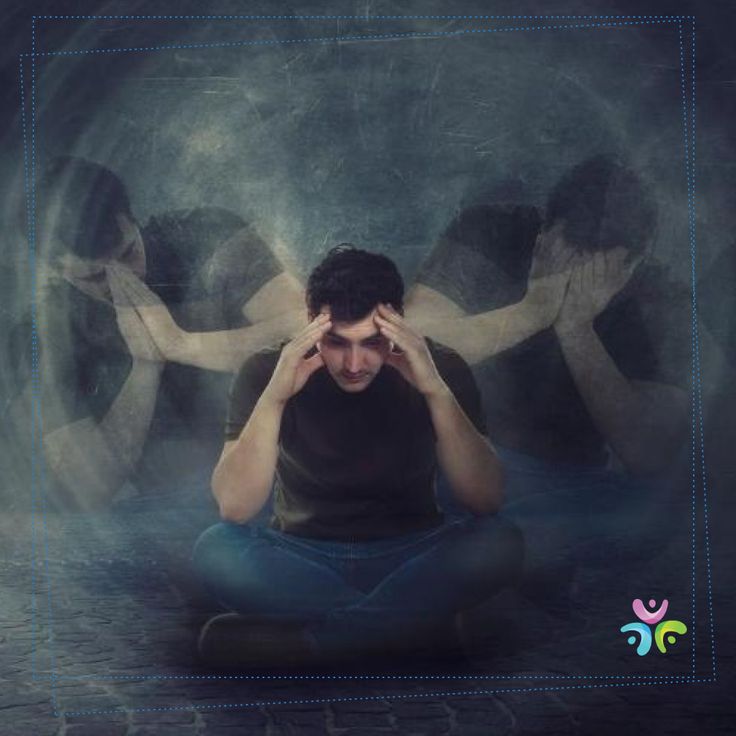 He was walking along an empty school corridor and suddenly heard a strange sound.
He was walking along an empty school corridor and suddenly heard a strange sound.
"It seemed to me that there was a grinding of train brakes, and then a metallic clang. For me it was a complete surprise, I just did not understand what happened. And then I got scared," he says.
This was his first encounter with mental illness. He was then 12 years old.
- "We were taught not to whine": how to accept and overcome depression
- Euthanasia due to mental illness. Was there an alternative?
- Skunk-type cannabis increases the risk of psychosis
Auditory hallucinations were increasing - he heard single words, his own name, and at the end - whole phrases, as if someone was trying to talk to him.
This is one of the main signs of psychosis - hallucinations and delusions, and they can be caused by a specific disease - schizophrenia, bipolar disorder or acute depression.
Stress, trauma, drugs, alcohol, drug exposure, or a brain tumor can also cause these phenomena.
The invisible enemy
Psychosis is not as common as depression - it affects less than one person in a hundred. Experts say that for the successful treatment of psychosis, it is important to recognize and diagnose it as soon as possible.
Psychotic people are much more likely to commit suicide or cause physical injury to themselves.
According to psychiatrists, more than half of the patients admit that it was difficult for them to notice the initial symptoms of psychosis.
Most often, such symptoms appear in the age group of 18-24 years, and psychiatrists believe that a lack of knowledge in this area leads to the fact that young people do not receive timely help.
There are more hidden signs that indicate mental distress and the approach of a psychotic state - growing self-isolation, a tendency to strange views and ideas, sharp mood swings and confusion in thoughts.
Symptoms of psychosis:
- Hallucinations, when it seems to a person that he sees, hears, feels something that does not exist in reality
- The most common are auditory hallucinations beliefs
- Among the delusions prevails the belief of the sick person that someone is secretly threatening him
- Rapid continuous speech
- Confused speech - for example, a quick transition from one topic to another in one phrase
- Sudden loss of train of thought, resulting in a sudden pause in conversation
Luke tried to talk about anxiety symptoms with the teacher, but, according to him, he was given to understand that this should not be shared with everyone.
So he decided to stand firm and keep the secret to himself. Luke kept quiet about his illness until he had to drop out of his third year at university.
He admits now that even members of his family would find it difficult to notice that something was wrong with him.
"They thought I was quiet because that's how I dealt with problems. I rarely left my room and preferred not to talk to anyone. And my parents used to think of me as a quiet and calm child," says Luke.
But when he became a student, it was difficult for him - it turned out to be impossible to hide his psychosis in the conditions of student life.
He dropped out of school without telling his parents, who were unaware of anything.
image copyrightFamily photo
Photo image caption,When Luke's father Steve found out about his son's illness, he was understanding and caring.
"When my illness got to the point, I just disappeared," says Luke. "I stopped keeping in touch with my parents."
"When the university informed them that I had dropped out, they realized that something was happening to me, and this was the first step towards a cure.